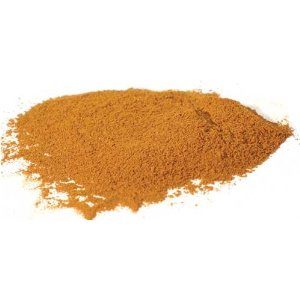Cinnamon oil is well known as a good food additive. It is now also becoming popular as a good health supplement and a substance that can be used for healing and medicine.
This oil has been used for thousands of years and has continued to be very valuable and useful to us today. It is not just tasteful, but it also contains many substances that can give us many health benefits. There is no doubt that there are many benefits of cinnamon oil that we can take advantage of. This is proven by the fact that it is used in making skin care products, soaps and detergents, and topical skin treatments. You can also find cinnamon oil as an ingredient in foods, perfumes, medicines, pest repellents, room fresheners, mouth washes and many more.
Substances Contained In Cinnamon Oil
There are three basic types of substance found in cinnamon oil. They are the active agents called cinnamaldehyde, cinnamyl acetate and cinnamyl alcohol. Aside from these three, there are still numerous volatile substances that the oil contains. Some of them are linalool, beta-caryophyllene, methyl chavicol and eugenol. This specific combination of substances can be of tremendous benefit to our health. This was proven over the many long years it has been used for both food and medicine.
Benefits We Can Get From Cinnamon Oil
Here are some specific benefits of using cinnamon oil:
• The scent of cinnamon oil can boost your brain function. Research done by D. P. Zoladz in 2004 revealed that smelling cinnamon or chewing gum flavored with it increased cognitive processing. The scores of the test participants significantly improved upon exposure to cinnamon odor. They were tested on virtual recognition memory, attentional processes, working memory and visual-motor speed while they were working on a computer-based program. They are now studying the effects of cinnamon oil to those who have diseases that lead to reduction in cognitive abilities.
• Research has also been conducted which showed that cinnamon may be of help in blood sugar control. The research showed that people with type 2 diabetes improved their capacity to respond to insulin. As a result, their blood sugar levels were normalized. Tests have also shown that there are substances in cinnamon that stimulates insulin receptors and at the same time inhibit an enzyme that deactivates them. This resulted in significantly increasing the ability of the cells to use glucose.
• Cinnamon prevents the clotting of blood. The effect of cinnamaldehyde in cinnamon has been well-researched. It helps prevent unwanted clumping of blood platelets. During emergency situations, clumping of blood is necessary to prevent loss of blood. But in normal situations, it will result in an insufficient blood flow. Cinnamon has the capacity to prevent clumping of blood under normal conditions.
• Cinnamon can improve colon health and prevent heart disease. Cinnamon contains dietary fiber, calcium, iron and traces of the mineral manganese. This specific combination of substances aids in the lowering of high cholesterol levels, thus helping prevent atherosclerosis and heart disease. The fiber content of cinnamon can help those suffering from constipation and diarrhea.
• Cinnamon can act as an anti-inflammatory agent. Cinnamon can inhibit the release of archidonic acid, an inflammatory acid from platelet membranes. As such, cinnamon will reduce inflammation and can be used as an anti-inflammatory agent.
• Cinnamon can be used to fight pathogens. There are studies which proved the ability of cinnamon oil to stop the growth of bacteria and fungi, including the yeast candida. Some studies showed that yeasts that resisted fluconazole, an anti-fungal medication were eradicated by cinnamon oil.
This essential oil is therefore effective in preserving food and can be used as an alternative to traditional food preservatives.
• If you have indigestion and similar digestive problems, taking cinnamon oil will alleviate these conditions.
• Cinnamon can also help those who are suffering from colds, sore throat, influenza and other respiratory problems.
• Nursing mothers can also benefit from cinnamon. It induces secretion of breast milk.
• Couples can also benefit from cinnamon if they want to control their pregnancy. If you regularly consume cinnamon oil after birth, it will delay your menstruation thereby avoiding conception.
Cinnamon can help clear the skin conditions of those suffering from pimples. The reason is that cinnamon is effective in blood purification.
When 26 spices were tested for antioxidant activity, cinnamon showed the highest activity, even higher than garlic and oregano. This means that cinnamon is great to boost your immunity.
There are many more benefits of cinnamon oil that we can take advantage of. But being a very potent substance, you should take it judiciously starting with small amounts. This is more important when applying it topically. Avoid using it in concentrated form because you may suffer skin irritations and allergies.
